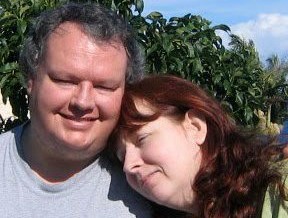Someone posted an article "How I Lost 100 pounds" which appeared on Lifehacker.com. I spent some time writing stuff in the comments, but what emerged turned out to be a pretty good summary of my low-carb experience so far. Read on if you are interested in my journey.
Monthly Archives: July 2012
Low-carb and Diabetes
I'm not officially "diabetic" but my doctor says I am "prediabetic". So some time back I got a blood glucose meter and tested myself for a while. Since then I have also started a very low-carb diet (call it Primal/Paleo or LCHF) and have lost a lot of weight. My HbA1C tests have showed I am still on the borderline, but my doctor says it shows "excellent control" (mine is 5.1%, non-diabetic will be 4.9% or less).
So I probably still have some level of insulin resistance, and will keep checking things. But, I am happy with the weight loss (70 pounds so far in the last 18 months) and I'm feeling great.
LJ friends clean-up
Removed some friends from my list who probably are no longer active. If I removed you but you are still active, comment here!
On the subject of going cold-turkey vs. gradually reducing carbs
I posted this as a comment in a friend's journal but it sums up a lot of what I've been thinking about lately.
On the subject of going cold-turkey vs. gradually reducing carbs…
Re-negotiating my relationship to food
I want to re-negotiate my relationship to food.
Typical low-fat diet wisdom
- Eat a lot of small meals during the day
- Diet and exercise together–both are important
- Portion control is key
- Eat protein, starch, and veggies about equally
- Avoid fat, no "bad" fats, small amount of "good" fats
- Avoid sweets
- Carbs are the body's "preferred" fuel
- Number of calories is the most important measurement of the diet
- If you eat fat, you can only eat half as much food as when you're eating carbs
What's wrong with this picture?
- I want to eat when I am hungry. I don't want to feel hungry and I don't want to busy myself eating when I am not hungry.
- I know short-term diets don't work. I know I need to find a plan that I can live with for the rest of my life.
- I want to find the right balance of food for me. I haven't found it yet, but since I started actively experimenting on myself, I feel I am much closer.
- I don't want to count calories in order to live. If I can find the "right" foods, I would prefer to eat when I'm hungry, stop when I'm not hungry. The "right" foods are the ones that I can eat more of, if I feel the urge.
- Keeping track of what I eat is necessary only while I'm re-learning how to eat, or when I'm actively experimenting on myself.
- I don't know how to "listen to my body" to learn what it truly needs. Since I've had a lifetime of learning the wrong way to eat, and have picked up habits that don't work well, the messages from my body may be drowned out by other messages, or may even be fundamentally wrong. I would like to learn this skill, though. I want to be able to follow the signals from my own body rather than ignore them or fight them. I need to find the right channels to tune in.
- I love food, and I love to eat. Because of that, I don't want to eat crappy food just to "fill up". Maybe I'll eat until I'm full on special occasions, but only if the food is awesome and I'm enjoying every bite. Having great food is much more important to me than having more food.
- I want to feel satisfied after eating, and not feel hungry again for many hours. I don't need to feel full… I just want to not think about food for a while, and not get into trouble because of it.
- There are some special foods that I love, but I don't need to have them every day. In most cases having them every week or even every month or two is fine — I enjoy them even more, and I am not suffering in between treat-times. When I do have them, I want to have "enough" but I prefer not to have too much.
- I don't think I should need to eat foods I don't care for just because they are "good for me". I am not in danger of being malnourished. If my body needs something, I'll probably get a craving for it, if I can learn to listen to the signals.
- I keep hearing about how eating fat makes you fat, but history tells me that bacon and eggs are not new on the world stage. Low-fat and highly processed foods are new, however. I should seek out "real" food and I should be skeptical of anything my grandparents would not have recognized as food.
- Industrial food-makers have a vested interest in selling me foods made of corn and wheat, because it is cheap for them to make. I have a good job, so I can afford to pay the full, true cost of my food. Cheaper food is seldom better food. I want my choice of food to reflect my deeply-held moral beliefs as well as being good for my body.
- I believe that I should have some exercise, but I also believe it should be in moderation too. I believe it will be easier to eat less than to raise my exercise level to match the excess in my diet. I am skeptical of a diet that comes with a required exercise plan–I know they show short-term results, but it is not a good fit for the rest of my life.
